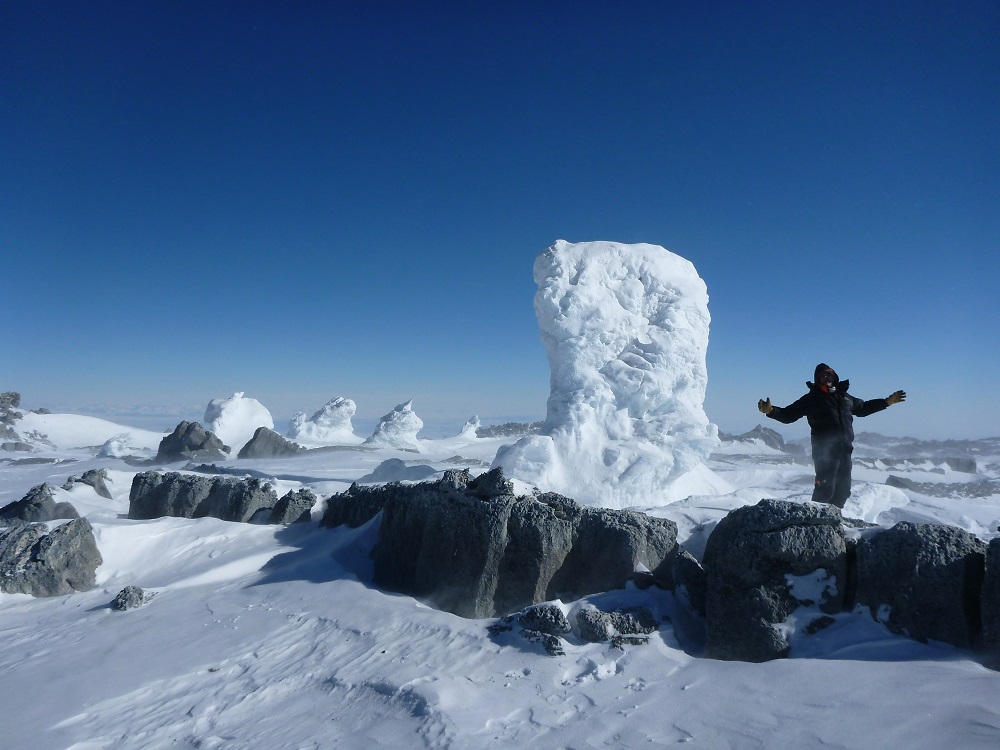Join us near the crater of Mt Erebus, the southern-most active volcano on earth

Part of my job down here in Antarctica is being a member of JASART – The Joint Antarctic Search and Rescue Team, a collaboration between the NZ and US programs. We are on call to respond to things like aircraft crashes, crevasse falls, and missing people. So far I have not been involved in any real incidents (touch wood), however we do get to go on cool training trips. I shot the video below on a trip to Mt Erebus, a 3794m (12448 ft) high active volcano that looms in the background of our bases.
What's it like on the mountain?
The day we were there I would say that the ambient temperature was around -17C (0F). It took 3 helicopter flights to fly us and our gear to Lower Erebus Hut (LEH) at 3400m (11200ft) on the side of the mountain where a 40km/h wind made things rather uncomfortable. The air was noticeably thinner up there and by the end of the day some members of our party were feeling preliminary signs of Acute Mountain Sickness (AMS). Because air pressures are lower near the poles, the effects of altitude are exacerbated. We had flown in directly from sea level and had no altitude acclimation, therefor it was imperative that we kept an eye on each other and the weather. Getting stuck up there without acclimation could spell disaster.


The Ice Fumeroles on Erebus
These are pretty cool. There are several places in my video that show the fumeroles, the most spectacular one being the big phallic shaped one at around the 40 second mark. These fumeroles have systems of ice caves beneath the surface where warm humid micro-climates exist. These are of particular interest to scientists as it is believed that similar environments could be found other planets such as Mars and could harbor life.

Our route from LEH to Fang Glacier camp
We landed at Lower Erebus Hut (LEH) 3402m. This is a permanent camp used by scientists with the US Antarctic Program (USAP) and is home to the Mount Erebus volcano observatory (MEVO). There is standard route marked with bamboo wands between LEH and Fang Glacier Camp that we followed. The route is not particularly steep or dangerous, and can be followed by experienced people on snow mobiles. Fang Glacier Camp where we finished our exercise is situated at about 2800m and is often used as a place for people to acclimatize before moving up to LEH.
Technical Search and Rescue
Search and rescue has many different aspects and facets to it, especially in Antarctica where the terrain can extreme and hostile. On this trip we were practicing our technical rope rescue skills, which we would employ in order to get injured people out of steep and difficult terrain. Similar techniques to the ones we were using have been used several times in Antarctica to recover people/bodies from crevasses. Erebus, although not very steep, was a great training ground for us to practice lowering a stretcher and attendant down a slope. This situation could play out in real life if someone was injured halfway down a steep slope and we were unable to access the slope directly by helicopter. The photo below shows myself training for crevasse extraction in New Zealand.

